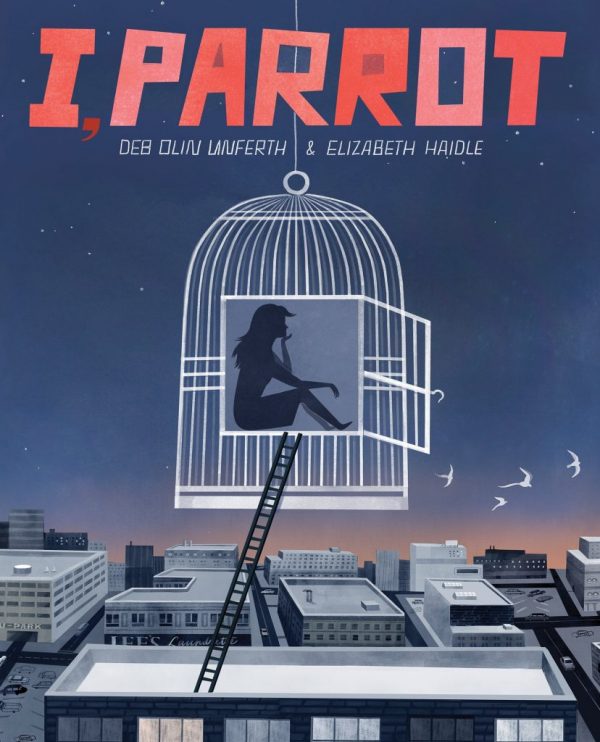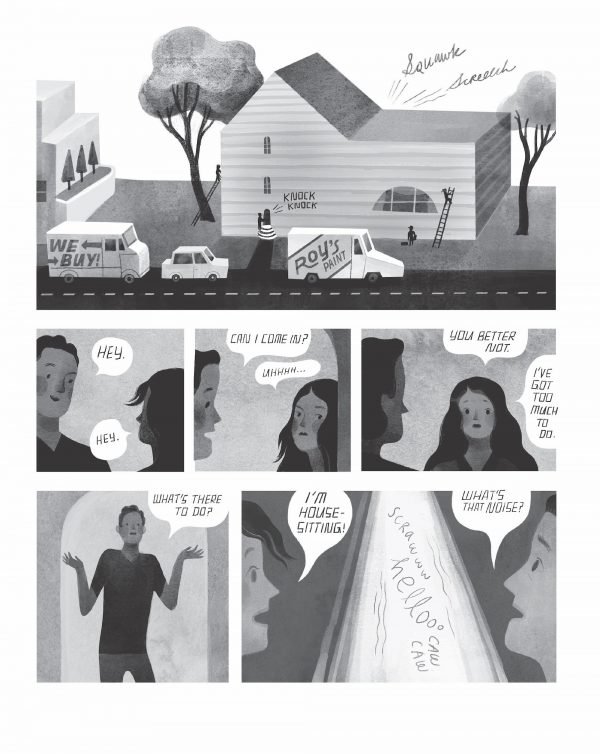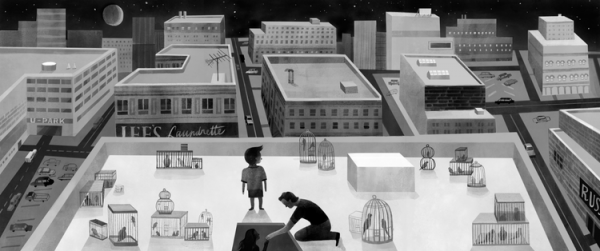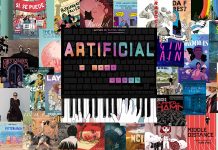On the surface, I, Parrot is a madcap farce about taking care of 42 parrots as it snowballs into absurdity on almost a surreal degree. Taken on all levels, writer Deb Olin Unferth and artist Elizabeth Haidle have crafted a lovely fable about gathering all the precious pieces that make up your life and giving them that delicate tightrope of a gift that involves freedom and nurturing. And somehow it manages to be pithy and funny while letting that unfold.
Daphne is a divorced woman, a mother, a person trying to get her life together by, at the very least, holding down a job. Her latest is as an assistant to a woman who works as a sort of positive thought guru, that self-actualization coach so prevalent these days that is making a mint off the human need for constant reassurance and the human inability to take charge of themselves.
Daphne makes fun of her boss and her boss’ work, but somewhere in there is some truth that Daphne could apply to herself. In her divorce, her obsessive and sinister ex-husband was able to finagle control of her son’s life, domineering custody and reshaping his mess into a life hostile to Daphne and controlling of her son.
Her desire to seize a status that will allow her to combat her husband’s control of her life even after the divorce and allow her to have a real relationship with her son is the focus of her efforts. It’s also the carrot that dangles in front of her even as each effort she makes falls apart in calamitous ways.
When her boss leaves town and asks her to take care of 42 parrots while housesitting, the situation starts out as absurd and then turns into a Herculean trial defined as a series of mishaps that grind down on Daphne more each time and take her further from a solution. The life she seeks seems further away the more she becomes involved with these parrots.
What I, Parrot posits is that we are not creatures who should be repeating reassurance spoken to us by our gurus as we sit on our perches waiting to feel better and being surprised when we don’t. We are all special creatures who require action and need to fend for ourselves to make a difference in our own lives. So Daphne is no different from the 42 parrots she cares for, right?
Of course. These are obvious lessons and Unferth and Haidle get them across with a lovely humor, a self-deprecating honesty, an elevated philosophical stance of self-reliance, and absolutely beautiful artwork that is grounded in the grays, by way of Little Golden Books styles like the Provensens or Mary Blair, but casts a pall over Daphne’s world, whimsical in its lines but trapped in a moral medium by its shading.
By the end of Daphne’s frantic caper, it’s not just a transformation through physical action but through emotional transformation, and yet the grays still define the universe, implying yet again that the required reassurance comes from within. Reality will never transform.










Comments are closed.